Filter by

Tax policy and the economy.
Recent academic research findings on topics relating to taxation and social insurance policy, including the implicit tax imposed by Medicaid on private long-term care insurance benefits, an alternative system of unemployment insurance, and federal energy tax policy.This NBER series presents current academic research findings in the areas of taxation and government spending. The papers included …
- Edition
- -
- ISBN/ISSN
- 9780262281867
- Collation
- 1 online resource (xvi, 184 pages) :illustrations.
- Series Title
- -
- Call Number
- -

Measuring the tax burden on capital and labor
A guide to current approaches to measuring the effective tax rate, with case studies that illustrate the different methods discussed.Today's highly complicated tax codes have led economists and policy makers depend on simplified summary measures in order to understand how taxes affect the economy. Studies of the effective tax rate--that is, a measurement of the net amount of tax levied on certa…
- Edition
- -
- ISBN/ISSN
- 9780262284097
- Collation
- 1 online resource (x, 364 pages) :illustrations.
- Series Title
- -
- Call Number
- -
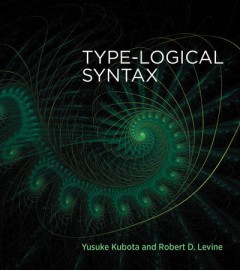
Type-Logical Syntax
A novel logic-based framework for representing the syntax–semantics interface of natural language, applicable to a range of phenomena. In this book, Yusuke Kubota and Robert Levine propose a type-logical version of categorial grammar as a viable alternative model of natural language syntax and semantics. They show that this novel logic-based framework is applicable to a range of phenomena�…
- Edition
- Ed. 1
- ISBN/ISSN
- 9780262360807
- Collation
- -
- Series Title
- -
- Call Number
- 412 KUB t
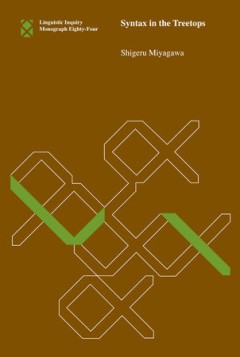
Syntax in the Treetops
In Syntax in the Treetops, Shigeru Miyagawa proposes that syntax extends into the domain of discourse by making linkages between core syntax and the conversational participants. Miyagawa draws on evidence for this extended syntactic structure from a wide variety of languages, including Basque, Japanese, Italian, Magahi, Newari, Romanian, and Spanish, as well as the language of children with aut…
- Edition
- Ed. 1
- ISBN/ISSN
- 9780262369091
- Collation
- -
- Series Title
- -
- Call Number
- 415 MIY s
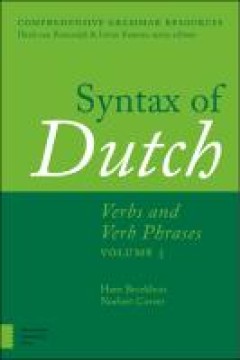
Syntax of Dutch: Verbs and Verb Phrases. Volume 3
The Syntax of Dutch aims at presenting a synthesis of the currently available syntactic knowledge of Dutch. It is primarily concerned with language description and not with linguistic theory, and provides support to all researchers interested in matters relating to the syntax of Dutch, including advanced students of language and linguistics. Syntax of Dutch: Verbs and Verb Phrases consists of t…
- Edition
- Ed. 1
- ISBN/ISSN
- 9789089647320, 9789048524846
- Collation
- 735
- Series Title
- Comprehensive grammar resources, Classification
- Call Number
- 425 BRO s
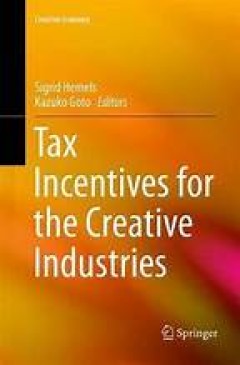
Tax Incentives for the Creative Industries
This book combines insights from cultural economics, public finance, and tax law, providing an accessible and comprehensive introduction in the application of tax incentives for the creative industries. It does not have a single-country focus, but instead uses the perspective and examples of various countries around the world. The book starts with a theoretical part, introducing the concepts of…
- Edition
- 1
- ISBN/ISSN
- 978-981-287-832-8
- Collation
- Business Management
- Series Title
- -
- Call Number
- 650
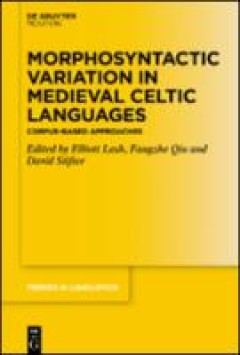
Morphosyntactic Variation in Medieval Celtic Languages: Corpus-Based Approaches
This book showcases the state of the art in corpus-based linguistic analysis of Celtic languages (specifically, Old/Middle Irish, Middle Welsh, and Cornish). It explores corpus approaches to morphosyntactic variation in the medieval Celtic languages and, for the first time, situates them in the broader field of computational and corpus linguistics by providing descriptions of tools for processi…
- Edition
- Ed. 1
- ISBN/ISSN
- -
- Collation
- 378
- Series Title
- Trends in Linguistics. Studies and Monographs [TiLSM], 346
- Call Number
- 306.44 MOR m
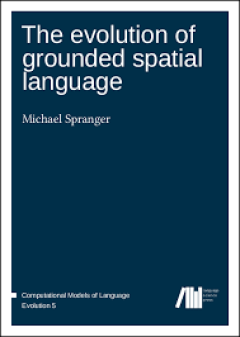
The evolution of grounded spatial language
This book presents groundbreaking robotic experiments on how and why spatial language evolves. It provides detailed explanations of the origins of spatial conceptualization strategies, spatial categories, landmark systems and spatial grammar by tracing the interplay of environmental conditions, communicative and cognitive pressures. The experiments discussed in this book go far beyond previous …
- Edition
- -
- ISBN/ISSN
- 9783944675466
- Collation
- -
- Series Title
- -
- Call Number
- -
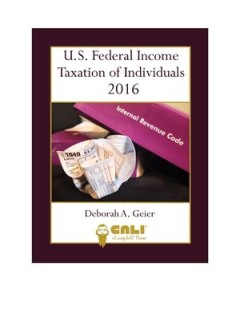
U.S. Federal Income Taxation of Individuals 2016
This is the third version of this textbook, updated through December 2015 for use beginning January 2016.This textbook is not intended to be an exhaustive treatise; rather, it is intended to be far more useful than that for beginning tax law students by equipping the novice not merely with unmoored detail but rather with a rich blueprint that illuminates the deeper structural framework on which…
- Edition
- -
- ISBN/ISSN
- -
- Collation
- -
- Series Title
- -
- Call Number
- 336 GEI u
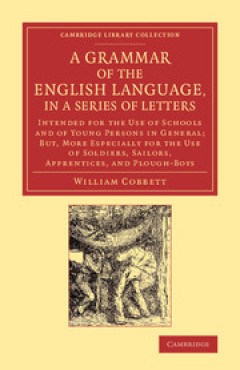
A Grammar of the English Language, in a Series of Letters Intended for the U…
Indefatigable as a writer and reformer on rural and political questions in his native Britain, William Cobbett (1763–1835) wrote the present work during the period he spent as a farmer in the United States. Intended for young people and especially 'soldiers, sailors, apprentices, and plough-boys' (Cobbett had himself been one of the latter), it provides concise and practical explanations of g…
- Edition
- -
- ISBN/ISSN
- 9781107256606
- Collation
- -
- Series Title
- Cambridge Library Collection - Literary Studies
- Call Number
- -
 Computer Science, Information & General Works
Computer Science, Information & General Works  Philosophy & Psychology
Philosophy & Psychology  Religion
Religion  Social Sciences
Social Sciences  Language
Language  Pure Science
Pure Science  Applied Sciences
Applied Sciences  Art & Recreation
Art & Recreation  Literature
Literature  History & Geography
History & Geography